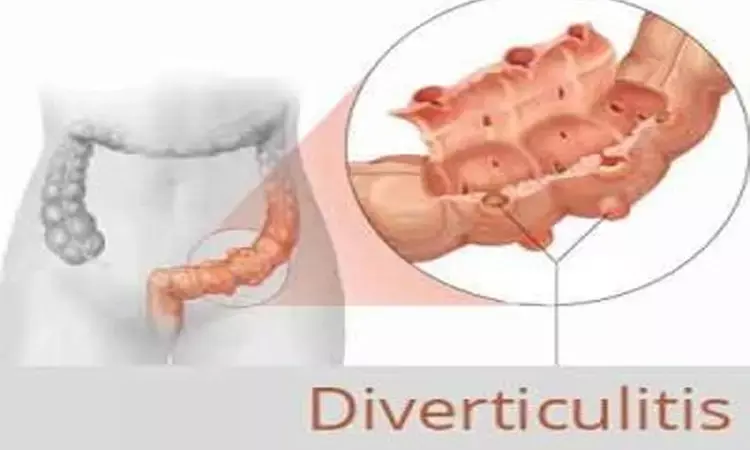- Home
- Medical news & Guidelines
- Anesthesiology
- Cardiology and CTVS
- Critical Care
- Dentistry
- Dermatology
- Diabetes and Endocrinology
- ENT
- Gastroenterology
- Medicine
- Nephrology
- Neurology
- Obstretics-Gynaecology
- Oncology
- Ophthalmology
- Orthopaedics
- Pediatrics-Neonatology
- Psychiatry
- Pulmonology
- Radiology
- Surgery
- Urology
- Laboratory Medicine
- Diet
- Nursing
- Paramedical
- Physiotherapy
- Health news
- Fact Check
- Bone Health Fact Check
- Brain Health Fact Check
- Cancer Related Fact Check
- Child Care Fact Check
- Dental and oral health fact check
- Diabetes and metabolic health fact check
- Diet and Nutrition Fact Check
- Eye and ENT Care Fact Check
- Fitness fact check
- Gut health fact check
- Heart health fact check
- Kidney health fact check
- Medical education fact check
- Men's health fact check
- Respiratory fact check
- Skin and hair care fact check
- Vaccine and Immunization fact check
- Women's health fact check
- AYUSH
- State News
- Andaman and Nicobar Islands
- Andhra Pradesh
- Arunachal Pradesh
- Assam
- Bihar
- Chandigarh
- Chattisgarh
- Dadra and Nagar Haveli
- Daman and Diu
- Delhi
- Goa
- Gujarat
- Haryana
- Himachal Pradesh
- Jammu & Kashmir
- Jharkhand
- Karnataka
- Kerala
- Ladakh
- Lakshadweep
- Madhya Pradesh
- Maharashtra
- Manipur
- Meghalaya
- Mizoram
- Nagaland
- Odisha
- Puducherry
- Punjab
- Rajasthan
- Sikkim
- Tamil Nadu
- Telangana
- Tripura
- Uttar Pradesh
- Uttrakhand
- West Bengal
- Medical Education
- Industry
Nut And Seed Intake Does Not Increase Diverticulitis Risk, unravels study

According to a new study published in Annals of Internal Medicine women who eat nuts, seeds, or corn are not at a higher risk of developing diverticulitis, unlike the popular belief that these foods might lead to the condition. This was concluded through the analysis of data from 29,916 women aged between 35 and 74 years, who were registered in a prospective cohort study. The trial, with almost 14 years of follow-up, offers strong evidence against dietary exclusion of these foods for the prevention of diverticulitis. The study was conducted by Barlowe T. and colleagues.
Diverticulitis is a frequent gastrointestinal illness in which small, bulging pouches (diverticula) within the digestive system become infected or inflamed. In the past, patients with diverticulosis were cautioned to exclude from their diets such foods as nuts, seeds, and corn because they were considered to get stuck in the diverticula and cause inflammation. But earlier work in men had already contradicted this belief. This new research carries the evidence over to women, finding that consumption of nuts, seeds, and corn does not raise the risk of diverticulitis.
The analysis involved 29,916 women aged 35-74 years who were cancer-free, diverticulitis-free, and free of inflammatory bowel disease at baseline. The assessment of dietary intake was done using food frequency questionnaires, while the occurrence of diverticulitis was established using self-reports. Investigators used Cox proportional hazards models after controlling for demographic and health characteristics to determine the association between dietary elements and the risk of diverticulitis.
Key Findings
• Upon a mean follow-up of 13.9 years, 1,531 cases of incident diverticulitis were ascertained.
• Consumption of peanuts, nuts, and seeds was not linked with diverticulitis risk (adjusted hazard ratio [aHR] for highest vs. lowest quartile, 1.07).
• Corn consumption was inversely related to diverticulitis risk, with individuals in the highest quartile showing decreased risk (aHR, 0.86).
• Women in the top quartile of DASH diet adherence had a 23% lower risk of diverticulitis (aHR, 0.77).
• Comparable risk reductions were observed with the Healthy Eating Index (aHR, 0.78) and the Alternative Healthy Eating Index (aHR, 0.81).
This research presents strong evidence that intake of nuts, seeds, or corn does not raise the risk of diverticulitis in women. Furthermore, compliance with healthy eating patterns, including the DASH diet, was linked to a lower risk of diverticulitis. These results contradict the traditional advice to exclude nuts and seeds from the diet for the prevention of diverticulitis and recommend the consumption of these foods as part of a healthy diet without fear.
Reference:
Barlowe, T., Anderson, C., Nichols, H. B., Salvador, A. C., Sandler, R. S., Sandler, D. P., & Peery, A. F. (2025). Diet and risk for incident diverticulitis in women : A prospective cohort study. Annals of Internal Medicine.https://doi.org/10.7326/ANNALS-24-03353
Dr Riya Dave has completed dentistry from Gujarat University in 2022. She is a dentist and accomplished medical and scientific writer known for her commitment to bridging the gap between clinical expertise and accessible healthcare information. She has been actively involved in writing blogs related to health and wellness.
Dr Kamal Kant Kohli-MBBS, DTCD- a chest specialist with more than 30 years of practice and a flair for writing clinical articles, Dr Kamal Kant Kohli joined Medical Dialogues as a Chief Editor of Medical News. Besides writing articles, as an editor, he proofreads and verifies all the medical content published on Medical Dialogues including those coming from journals, studies,medical conferences,guidelines etc. Email: drkohli@medicaldialogues.in. Contact no. 011-43720751


